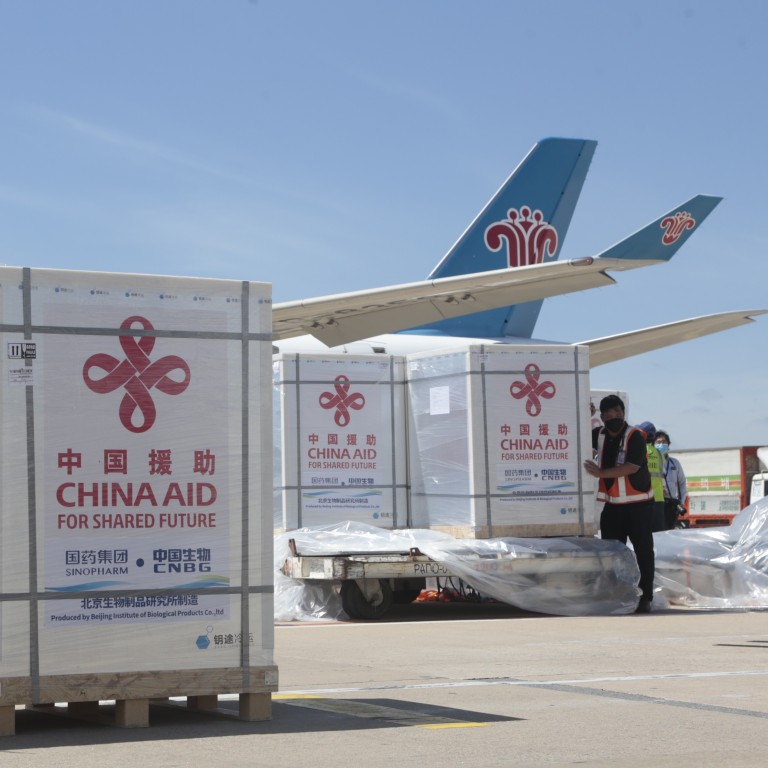
Southeast Asia a priority for Chinese vaccines as Delta fuels surge in Covid-19 cases, Vice-President Wang Qishan says
- Wang tells annual China-Asean Expo that Beijing will give further help as countries try to ramp up vaccinations
- Beijing has already provided 200 million doses to the 10-nation bloc but more are needed
What’s behind Southeast Asia’s hesitancy towards China-made vaccines?
In Vietnam, one of the worst-hit countries in the region, the health ministry said that all adult residents in Hanoi and Ho Chi Minh City, its two main cities, must receive at least one jab as the country reported an daily average of more than 12,000 new infections despite tight lockdown measures.
Less than 4 per cent of its population is fully vaccinated because of the vaccine shortage, far from its goal of 70 per cent by April next year.
Indonesia, the largest recipient of Chinese vaccines in the region, said it hoped to administer 50 million doses a month, while the Philippines has a target of vaccinating 90 per cent of the country’s population – up from the previous goal of 70 per cent – by next year to tackle the spread of the Delta variant.
China, together with the 10 member states of Asean, as well as Japan, South Korea, Australia and New Zealand, have also signed up to the Regional Comprehensive Economic Partnership, now the world’s largest free-trade agreement, setting a stark contrast with Washington’s 2016 withdrawal from the Trans-Pacific Partnership.
China to donate 100 million Covid-19 vaccine doses by end of 2021, says Xi
Wang said on Friday that China was willing to import more goods from Asean countries and called for the early implementation of RCEP
Cambodia announced that it had ratified the deal on Thursday, joining China, Singapore and Japan in doing so. Beijing hopes that the agreement will become effective on January 1 next year.

